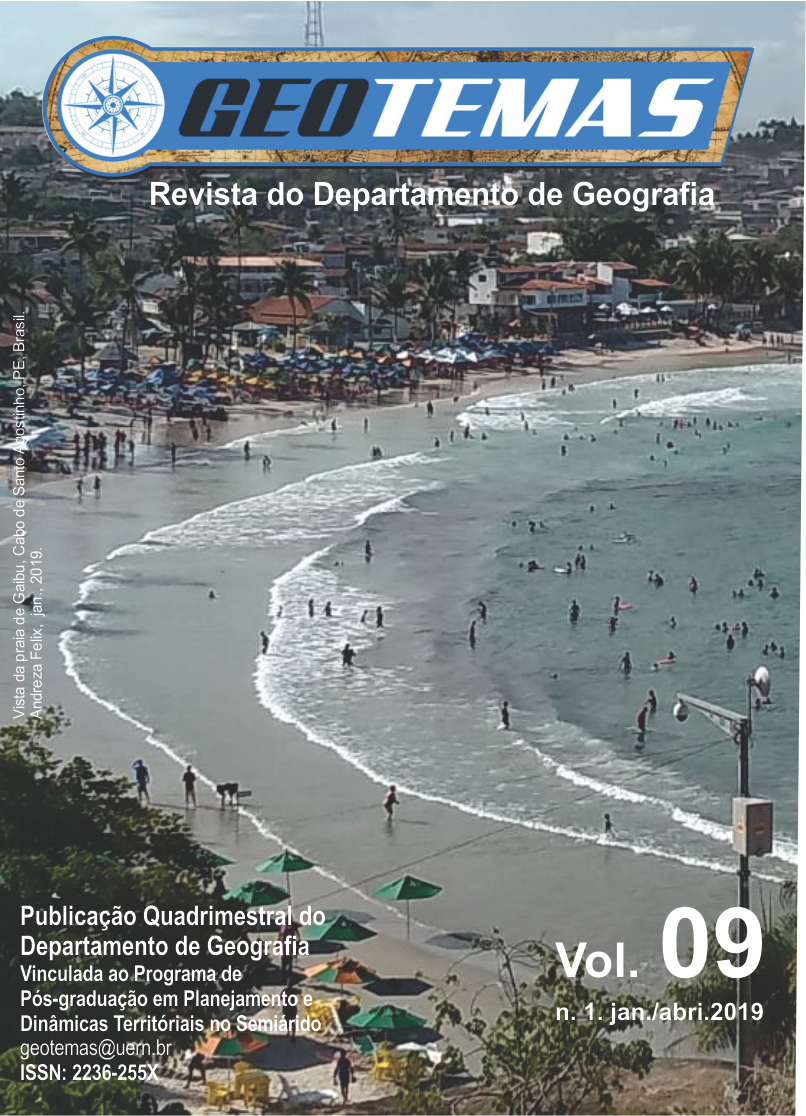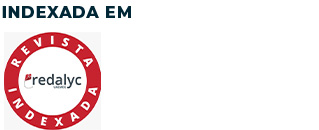The formative elements of Geography teachers: focus in graduation
Keywords:
Geography, Formative experience, GraduationAbstract
This article is based on the prerogative of the importance and necessity of geographical knowledge in the understanding of the world and in the knowledge to act in the same, from the formation of licensed geographers. To do so, it follows the qualitative dimension with the use of discursive nature and participant research. It is constituted as selected notes about constructive elements for the professional formation of the Geography teacher, elements that stand out in the mediation between theory and practice in this process. It is understood that to discuss about degree in Geography it is necessary to understand how this graduation modality emerges and is systematized, if it was necessary to understand how this systematization process was developed in Brazil. Therefore, it was imperative to search for bibliography that approached the aforementioned topic. We consider that the formative elements, especially those presented by this work, are important in the formation in Geography. We consider that the course of construction of the professional profile of the teacher, starting at the university, needs to be systematized, going through significant formative paths. Reflecting on the formative process, how it occurs and how it should occur, is essential to try to maintain or improve the practices involved. In this way, the work on canvas proposed constructive reflections on CAMEAM / UERN Geography training, based on the authors' experience. These reflections, perpetrated by the graduates, can create fertile ways so that one can reflect on the said course, with a view to improving it.
Downloads
References
ALARCíO, I. A formação do professor reflexivo. In:______. Professores reflexivos em uma escola reflexiva. São Paulo: Cortez, 2011, p. 43-63.
BOTELHO, C. L. A filosofia e o processo evolutivo da geografia. Rio de Janeiro: Biblioteca do exército, 1993.
BRASIL. Lei 4.024, de 20 de dezembro de 1961. Fixa as Diretrizes e Bases da Educação Nacional. Brasília: DF. 1961. Disponível em:<http://www.planalto.gov.br/ccivil_03/LEIS/L4024.htm>. Acesso em: 13 dez. 2018.
CAVALCANTI, L. S. A formação profissional: Princípios e propostas para uma atuação docente crítica. In:______. O ensino de Geografia na escola. Campinas, SP: Papirus, 2012, p. 13-38.
CORDEIRO, J. M. P.; OLIVEIRA, A. G. A Aula de campo em Geografia e suas contribuições para o processo de Ensino-Aprendizagem na escola. Revista Geografia, Londrina, v. 20, n. 2, p. 99-114, trimestral, 2011.
CORRÊA, M. L. Espaço: um conceito chave da Geografia. In: CASTRO, I. E.; GOMES, P. C. C.; CORRÊA, R. L. (Orgs.). Geografia: conceitos e temas. 16. Ed. Rio de Janeiro: Bertrand Brasil, 2014, p. 15-47.
DOURADO, J. A. L. Geografia "fora" da sala de aula: importância do trabalho de campo para a Geografia Agrária. Campo-território: revista de Geografia agrária, Uberlândia, v. 8, n. 15, p. 1-22, fev., 2013.
KHAOULE, A. M. K. O estágio supervisionado e suas contribuições na formação do professor de Geografia. In: BENTO, I. P.; OLIVEIRA, K. A. T. (Orgs.). Formação de professores: pesquisa e prática pedagógica em Geografia. Goiânia: Ed. da PUC Goiás, 2012, p. 57-78.
LIMA, M. S. L. O olhar de observação sobre a escola e suas relações: qual o sentido do Estágio para o Estagiário? In:______. Estágio e Aprendizagem da Profissão Docente. Liber Livro, 2012, p. 61-83.
MARTINS, R. E. M. W.; TONINI, I. M. A importância do estágio supervisionado em Geografia na construção do saber/fazer docente. Geografia, Ensino & Pesquisa, Santa Catarina, v. 20, n. 3, p. 98-106, 2016. Disponível em: <https://periodicos.ufsm.br/geografia>. Acesso em: 25 ago. 2017.
PIMENTA, S. G.; LIMA, M. S. L. Estágio e Docência. 5 ed. São Paulo: Cortez, 2010.
PONTUSCHKA, N. N; PAGANELLI, T. I; CACETE, N. H. A disciplina escolar e os currículos de Geografia. In:______. Para ensinar e aprender Geografia. São Paulo: Cortez Editora, 2007, p. 59-86.
PPC. Projeto Pedagógico do Curso de Geografia. Universidade do Estado do Rio Grande do Norte, Campus Avançado Profa. Maria Elisa de Albuquerque Maia, Pau dos Ferros, RN, jun., 2014.
ROCHA, G. O. R. Uma breve história da formação do (a) professor (a) de Geografia no Brasil. Terra Livre, São Paulo, n.15, p. 129-144, 2000. Disponível em: <http://www.agb.org.br/publicacoes/index.php/terralivre/article/view/364/346>. Acesso em: 25 julh. 2018.
SANTOS, M: Espaço e Método. São Paulo, Nobel, 1985.
SANTOS, S. M. O desempenho das universidades brasileiras nos rankings internacionais: áreas de destaque de produção científica brasileira. 344 f. Tese (Doutoramento em Ciências da informática) - Escola de Comunicação e Artes da Universidade de São Paulo, São Paulo, 2015.
SEVERINO, A. J. Universidade, ciência e formação acadêmica. 23 ed. rev. e atual. São Paulo: Cortez, 2007.
SILVA, S. R.; EUFRíSIO, K. N. A pesquisa no processo de formação de professores: articulador e integrador de saberes necessários í prática pedagógica e docente. Intineraius reflectionis, Jataí-GO. v. 2, n. 9, p. 1-21, 2010. Disponível em: <https://www.revistas.ufg.br/rir/article/view/> . Acesso em: 20 jun. 2018.
UNIVERSIDADE DO ESTADO DO RIO GRANDE DO NORTE. Resolução nº 06 de 25 de fevereiro de 2015 – CONSEPE. Regulamenta o Estágio Curricular Supervisionado Obrigatório nos Cursos de Licenciatura da Universidade do Estado do Rio Grande do Norte. Sala das Sessões dos Colegiados. Mossoró/RN, 25 de fev. 2015.
VARGAS, G. Uma análise quantitativa da produção científica da Universidade Federal de Santa Catarina. 91f. Dissertação (Mestrado em Administração) – Universidade Federal de Santa Catarina, Santa Catarina, 2002.
Downloads
Published
How to Cite
Issue
Section
License
Authors who submit their manuscripts to Geotemas declare that the work is an original article and has not been submitted for publication, in full or in part, in another national or international scientific journal or in another circulation vehicle. The authors also declare that they agree with the transfer of the copyright of the referred article to the magazine Geotemas (University of the State of Rio Grande do Norte), allowing for later publications, as long as the source of its publication is assured. Finally, they assume public responsibility for the article, being aware that any charges arising from a claim by third parties regarding the authorship of the work may apply to them.





















